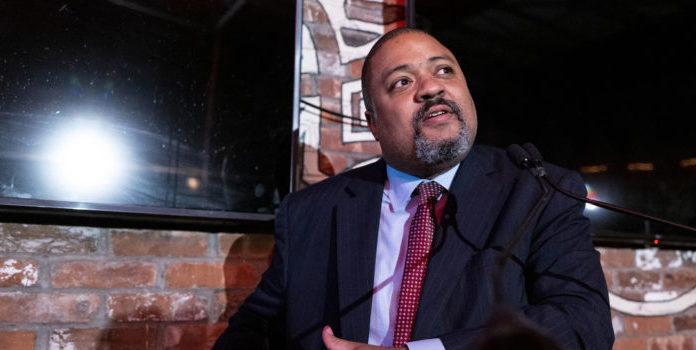(Headline USA) A chief prosecutor in Manhattan District Attorney Alvin Bragg’s office defended criminals as not “bad dudes” and advocated for critical race theory to be integrated in the criminal justice system.
Chief Assistant District Attorney Meg Reiss joined Bragg’s team in January 2022, and has repeatedly said she is trying to “actually change … an understanding that people have about prosecution,” according to Fox News.
“So one of the first things [to] do is change the language: ‘the bad dude.’ What does that mean? What are the circumstances of that person coming into the criminal justice system in the first place? And what is the background to that person?” she said in 2017.
Reiss also said prosecutors should consider alternatives for criminals other than incarceration.
“And is there a solution, alternative solution for that person other than being incarcerated? So, I mean, that’s one of the fundamental places we have to start is what does that mean, ‘bad dude?’” she said.
Reiss also created the Institute for Innovation on Prosecution in 2016 at John Jay College, which pushes critical race theory. For example, in one of the institute’s reports, signed with Reiss’ name, researchers claim prosecutors ought to focus on “acknowledging our nation’s shameful history of slavery and racism which continues to cloud the criminal justice system.”
To combat this racial inequity, prosecutors should intentionally slash recommended sentences.
“Your charging authority gives you the power to check and counterbalance some police actions,” the report states. “Recognize the systems that are upstream from your office that may perpetuate racial disparities in the justice system, and take steps in your own office to resist those trends.”
The only group of people Reiss seems willing to actually prosecute are police officers accused of misconduct. In one interview, Reiss lamented the “1,000 lives… lost at the hands of U.S. law enforcement every year” and criticized “the public, the media and, often, jury pools [who] are inclined to offer the benefit of the doubt to law enforcement while criminalizing those killed.”
“One conclusion seems inescapable,” she said. “The path towards accountability… must… confront the injustices that arise from systematic racism, both past and present.”

